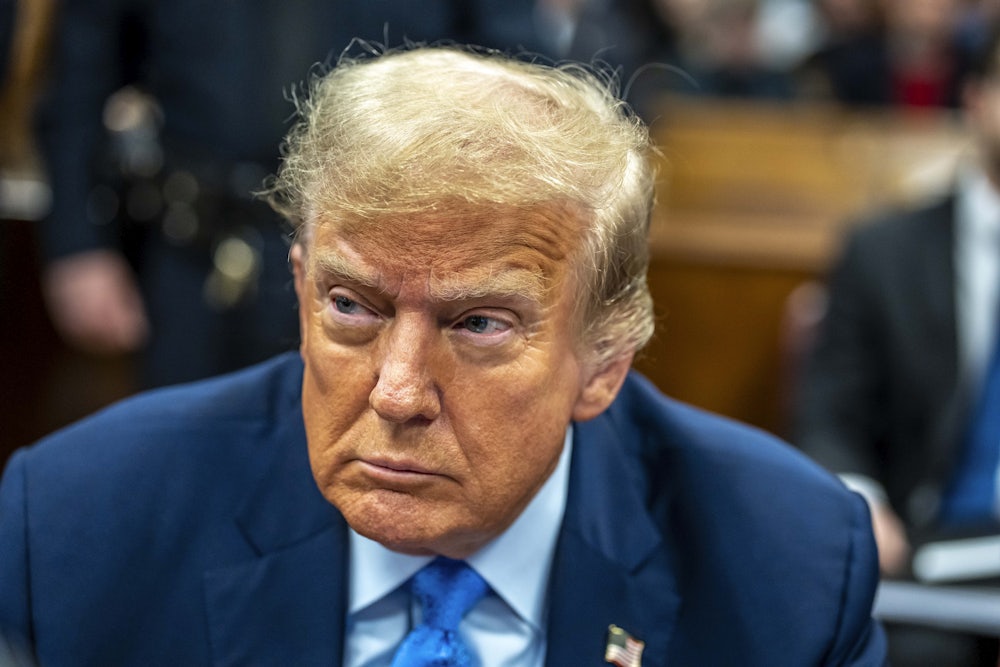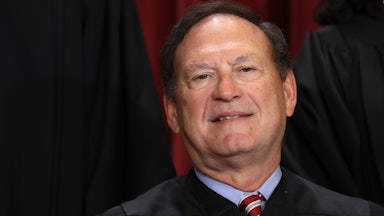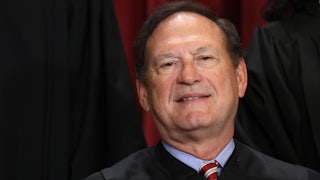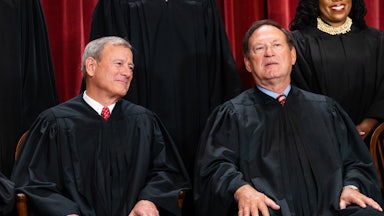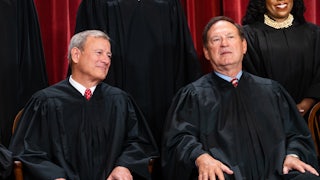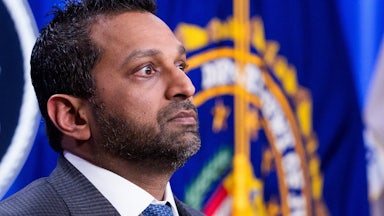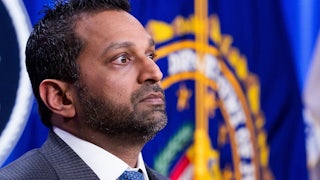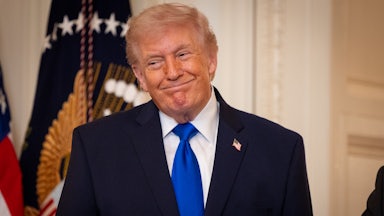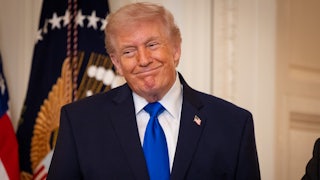“I’m profoundly disturbed about the apparent direction of the court,” J. Michael Luttig told me. “I now believe that it is unlikely Trump will ever be tried for the crimes he committed in attempting to overturn the 2020 election.”
I called Luttig, a former federal judge with extensive conservative credentials, to solicit his reaction to this week’s Supreme Court hearing over Donald Trump’s demand for absolute immunity from prosecution for any crimes related to his insurrection attempt. On Thursday, Luttig posted a thread critiquing the right-wing justices for their apparent openness to Trump’s arguments—but that thread was legalistic and formal, so I figured Luttig had a lot more to say.
And did he ever. Luttig lacerated the right-wing justices for harboring a “radical vision” of the American presidency, and pronounced himself “gravely” worried that Trump will never face accountability for alleged crimes committed in attempting to destroy U.S. democracy through extensive procedural corruption and the naked incitement of mob violence.
Luttig’s fear that Trump may very well skate centers on the lines of questioning from the court’s right-wing majority about special counsel Jack Smith’s ongoing prosecution of Trump. As many observers noted, those justices appeared largely uninterested in the question before them—whether Trump’s alleged crimes related to the insurrection constituted official presidential acts that are immune from prosecution after leaving office.
Instead, the justices dwelled on the supposed future consequences of prosecuting presidents for crimes, and seemed to want to place some limits on that eventuality. That suggests the justices will kick the case back to lower courts to determine whether some definition of official presidential acts must be protected (and whether Trump’s specific acts qualify).
Such a move would almost certainly push Trump’s trial until after the election, and if he wins, he can simply cancel prosecutions of himself. Luttig fears that outcome. But he also worries that even if Trump loses the election, there may well be five Supreme Court votes for siding with Trump’s demand for immunity. Both outcomes would functionally end his prosecution.
“I believe it is now likely either that Trump will get elected and instruct his attorney general to drop the charges, or that the Supreme Court will grant him immunity from prosecution,” Luttig told me.
To be sure, some observers think that in the end, five justices will not grant Trump that immunity. In this scenario, a conservative majority could remand the case to lower courts to define official presidential acts that cannot be prosecuted, even as some combination of five or more justices later rules that Trump’s specific actions are still subject to prosecution.
But Luttig fears that this may be overly optimistic.
Luttig pointed out that even Chief Justice John Roberts seemed to express some sympathy for the general idea that official presidential acts should be immune from prosecution. He also noted that Justice Brett Kavanaugh praised the pardon of Richard Nixon and that Justice Neil Gorsuch said that if presidents can be prosecuted, they might pardon themselves before leaving office to protect themselves, which Gorsuch suggested might be legitimate.
Take all that together, Luttig said, and it’s not hard to see how five right-wing justices could let Trump off. Some could declare that Trump’s actions related to January 6 (the pressure on his vice president to subvert the electoral count and on the Justice Department to create a fake pretext for that) constitute official acts immune from prosecution. Others might hold that the statutes Trump allegedly violated don’t offer a clear statement that they apply to presidents, Luttig said.
Either way, Trump has already gotten much of what he wants with the all-but-certain delay. And the lines of questioning from the right-wing justices are already deeply alarming, Luttig argued. Justice Samuel Alito, for instance, declared that if presidents must fear prosecution after leaving office, they might prove more prone to resisting the transfer of power, destabilizing the country.
That’s preposterous, as The New Republic’s Michael Tomasky noted, since there’s never been a bar on postpresidential prosecution throughout U.S. history, yet the only president to aggressively resist that transfer is Donald Trump himself. What’s more, as Dahlia Lithwick and Mark Joseph Stern point out at Slate, the notion also seems to suggest, absurdly, that giving presidents free rein to commit crimes in office, including attempting to destroy democracy at its very foundations, is essential to maintaining democratic stability.
One might add that when the justices ruled that Trump’s insurrection does not disqualify him from the ballot, they told us that this, too, was necessary to avoid national destabilization. Mysteriously enough, a key ingredient for achieving political stability always seems to involve not holding Trump accountable.
“The conservative justices’ argument for immunity assumes that Jack Smith’s prosecution of Trump is politically corrupt and seeks a rule that would prevent future presidents from corruptly prosecuting their predecessors,” Luttig said.
“But such a rule would license all future presidents to commit crimes against the United States while in office with impunity,” Luttig concluded. “Which is exactly what Trump is arguing he’s entitled to do.”
